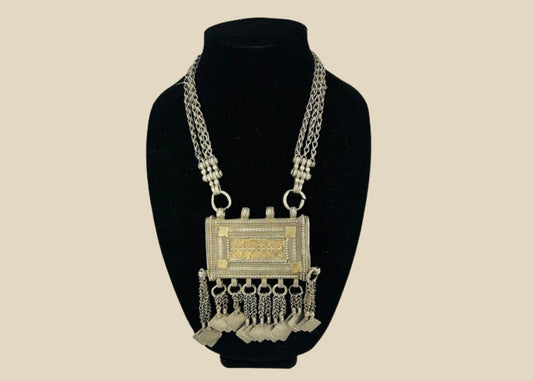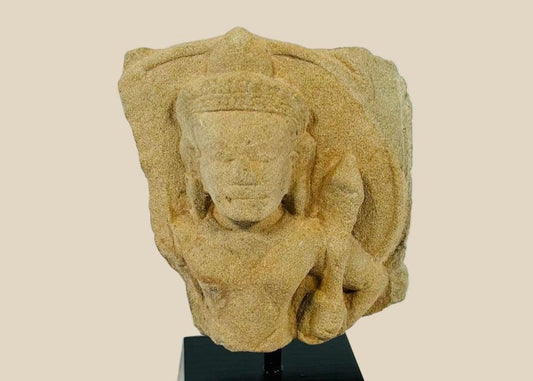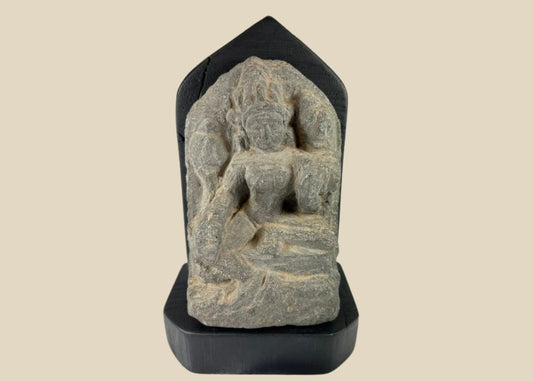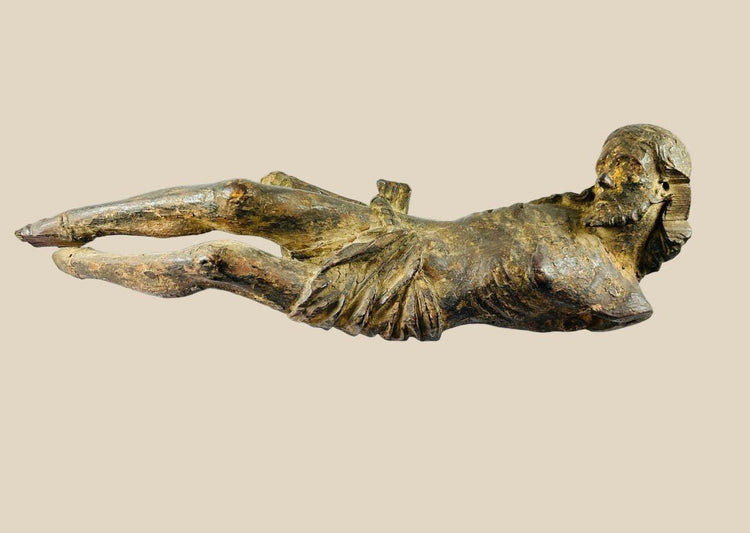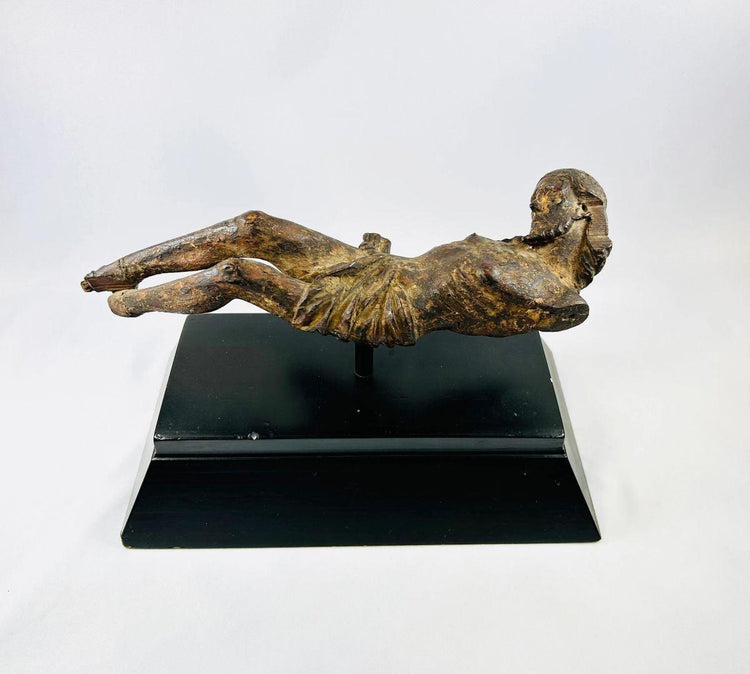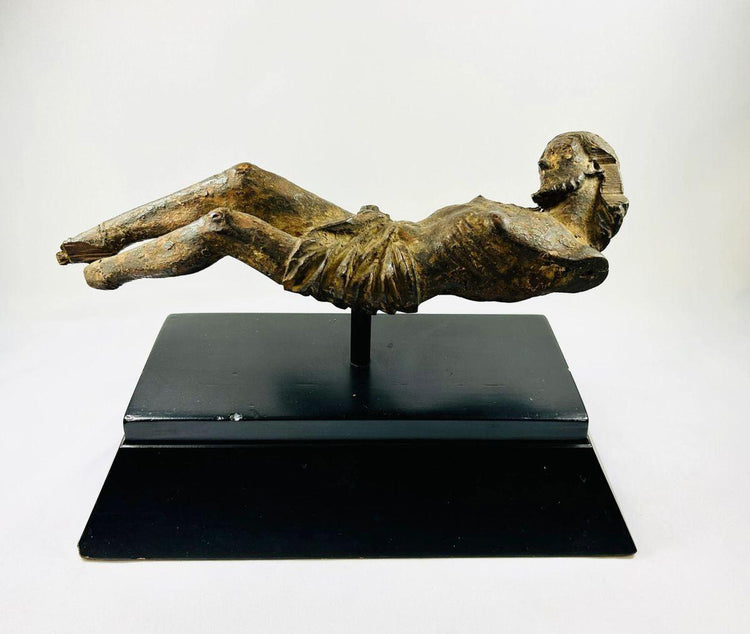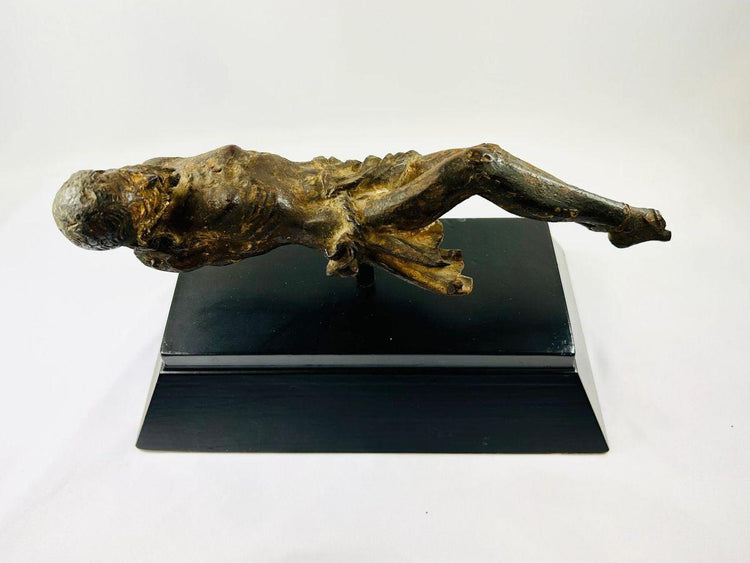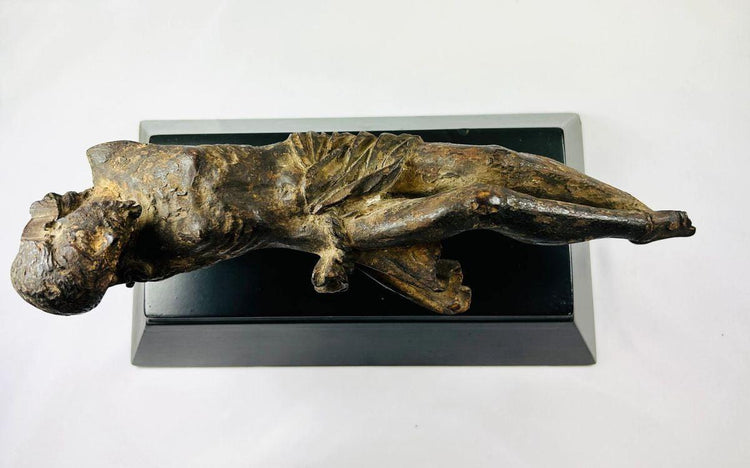European Wooden Crucifix | Baroque Christ Figure | Circa 17th Century
Description
More
Less
Historical Context & Origin
Region: Southern Europe (likely Spain or Italy)
Material: Hand-carved wood with natural patina
Period: 17th Century (Baroque era)
Description
This remarkable European wooden crucifix, carved during the 17th century, embodies the intense spirituality and artistic refinement of the Baroque period. Depicting Christ in a posture of humility and suffering, the sculpture communicates both emotional depth and devotional purpose. With Christ’s head bowed in sorrow, finely rendered hair and beard, and emaciated limbs, the crucifix reflects the dramatic realism prized by Baroque artists. Likely intended for private chapel or altar devotion, it remains a powerful symbol of faith and artistry.
Features
- Authentic 17th-century religious sculpture
- Expressive carving with symbolic posture of humility and sacrifice
- Detailed rendering of loincloth, hair, and facial features
- Compact devotional size, suitable for display or private worship
- Aged natural patina testifying to authenticity and centuries of reverence
Cultural Significance
Baroque religious art emphasized emotion, drama, and devotion. Crucifixes such as this one were created not merely as objects of art but as focal points of faith—tools to inspire reflection, penitence, and reverence. Serving both liturgical and private functions, this crucifix represents the intersection of artistic mastery and sacred tradition, offering a glimpse into the devotional life of early modern Europe. Its survival across centuries reinforces its value as a cultural and spiritual relic.
Condition
Preserved in aged condition with natural patina and surface wear consistent with centuries of devotional use. Strong form retained, with expressive details still visible.
Dimensions (approximate)
Width: 9.7 in
Age
17th Century
Learn More
Explore Our Entire Collection of Religious and Spiritual Relics
Read About The Materials and Polychrome Techniques Used in 17th-Century Wooden Sculpture
Description
Historical Context & Origin
Region: Southern Europe (likely Spain or Italy)
Material: Hand-carved wood with natural patina
Period: 17th Century (Baroque era)
Description
This remarkable European wooden crucifix, carved during the 17th century, embodies the intense spirituality and artistic refinement of the Baroque period. Depicting Christ in a posture of humility and suffering, the sculpture communicates both emotional depth and devotional purpose. With Christ’s head bowed in sorrow, finely rendered hair and beard, and emaciated limbs, the crucifix reflects the dramatic realism prized by Baroque artists. Likely intended for private chapel or altar devotion, it remains a powerful symbol of faith and artistry.
Features
- Authentic 17th-century religious sculpture
- Expressive carving with symbolic posture of humility and sacrifice
- Detailed rendering of loincloth, hair, and facial features
- Compact devotional size, suitable for display or private worship
- Aged natural patina testifying to authenticity and centuries of reverence
Cultural Significance
Baroque religious art emphasized emotion, drama, and devotion. Crucifixes such as this one were created not merely as objects of art but as focal points of faith—tools to inspire reflection, penitence, and reverence. Serving both liturgical and private functions, this crucifix represents the intersection of artistic mastery and sacred tradition, offering a glimpse into the devotional life of early modern Europe. Its survival across centuries reinforces its value as a cultural and spiritual relic.
Condition
Preserved in aged condition with natural patina and surface wear consistent with centuries of devotional use. Strong form retained, with expressive details still visible.
Dimensions (approximate)
Width: 9.7 in
Age
17th Century
Learn More
Explore Our Entire Collection of Religious and Spiritual Relics
Read About The Materials and Polychrome Techniques Used in 17th-Century Wooden Sculpture
You May Also Like

